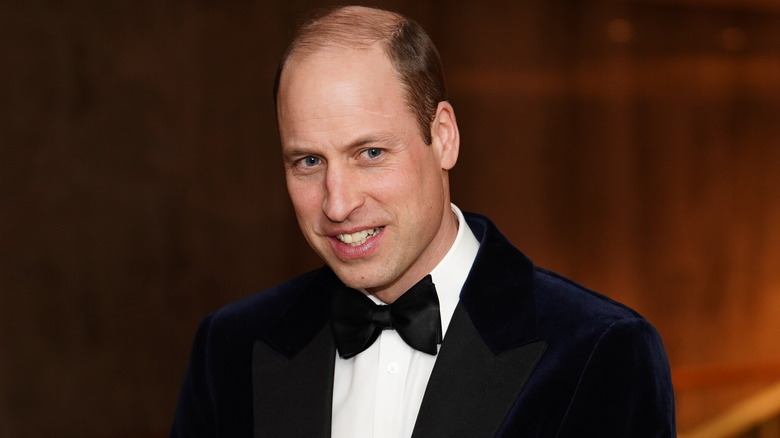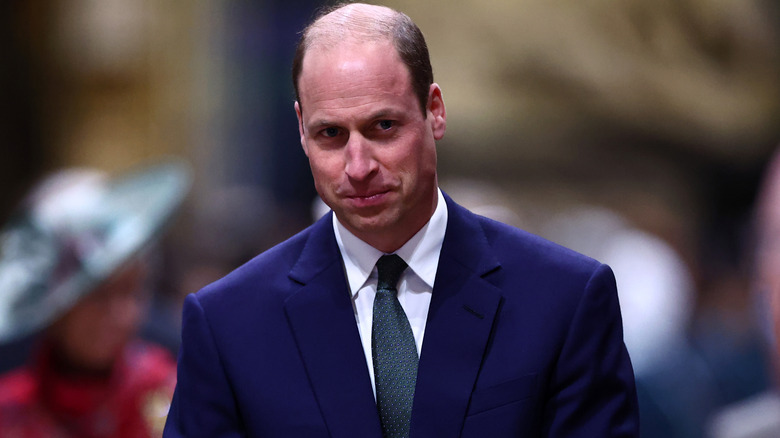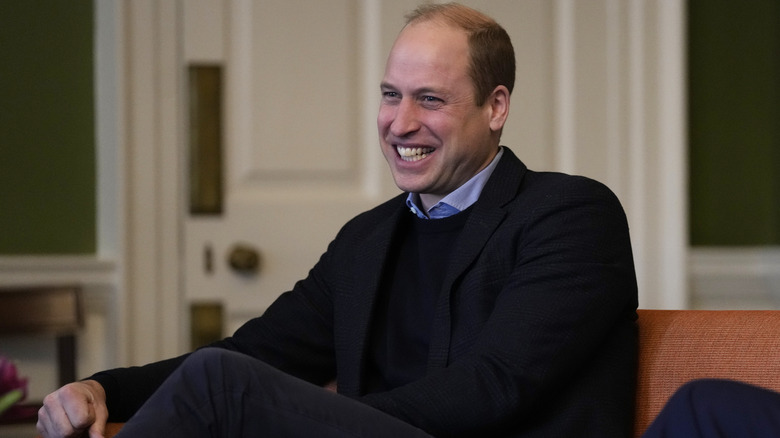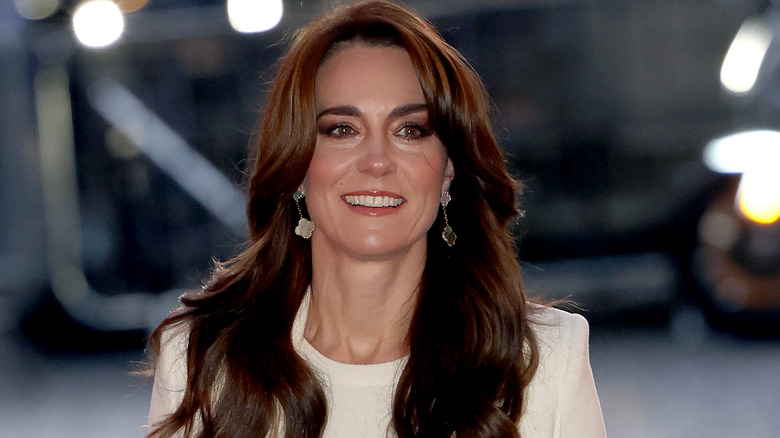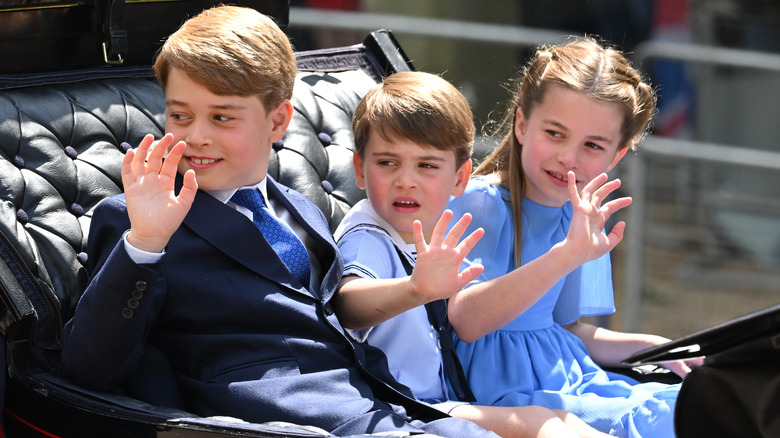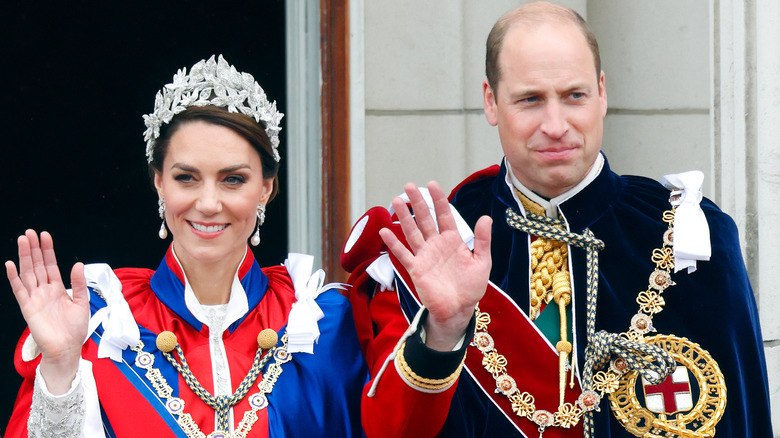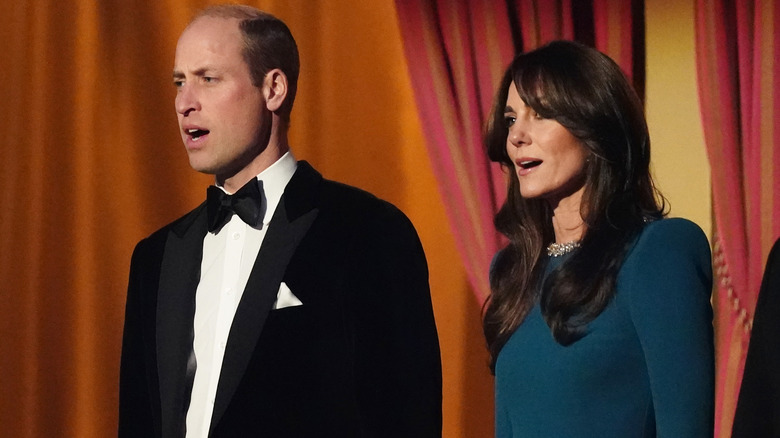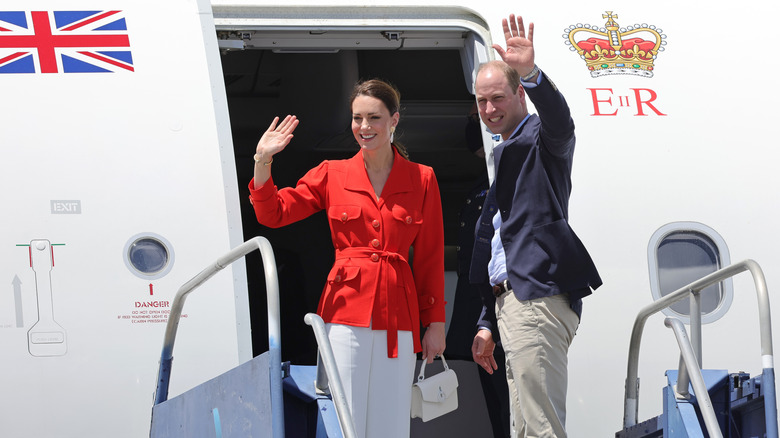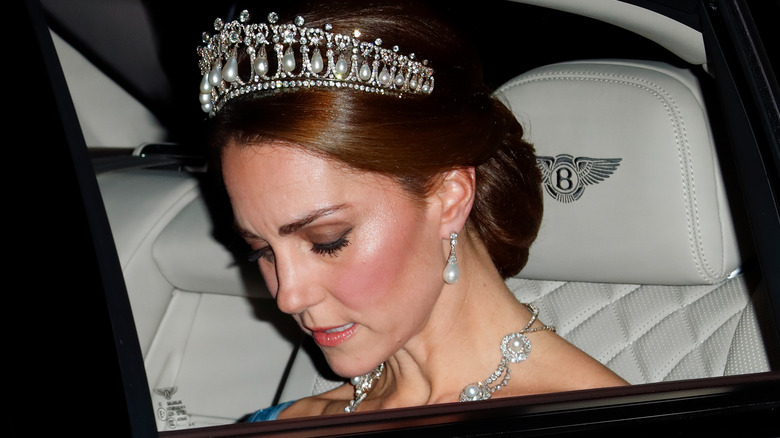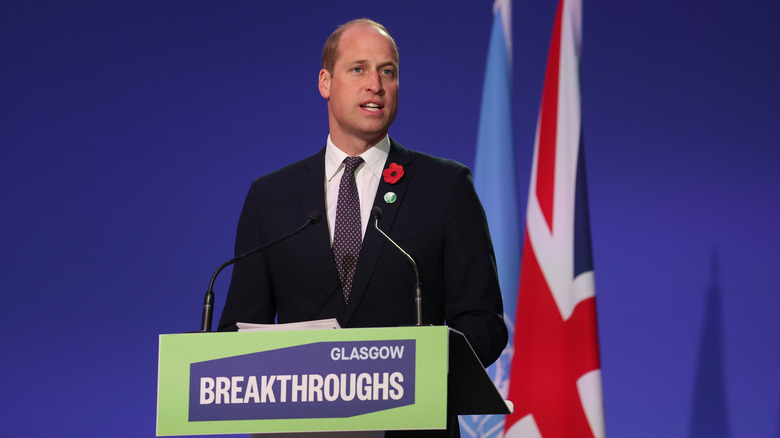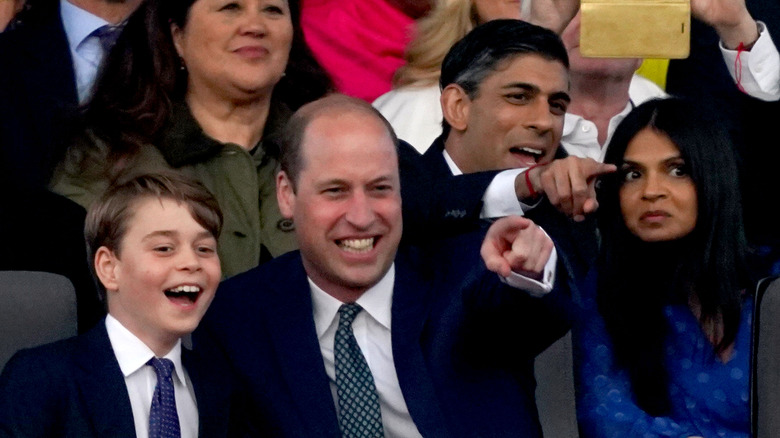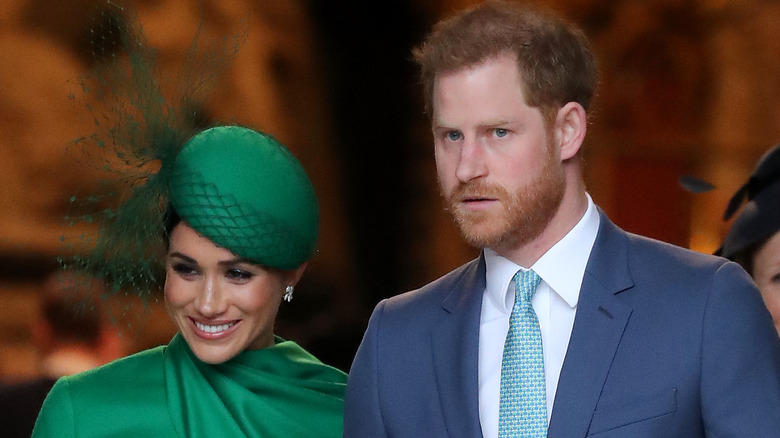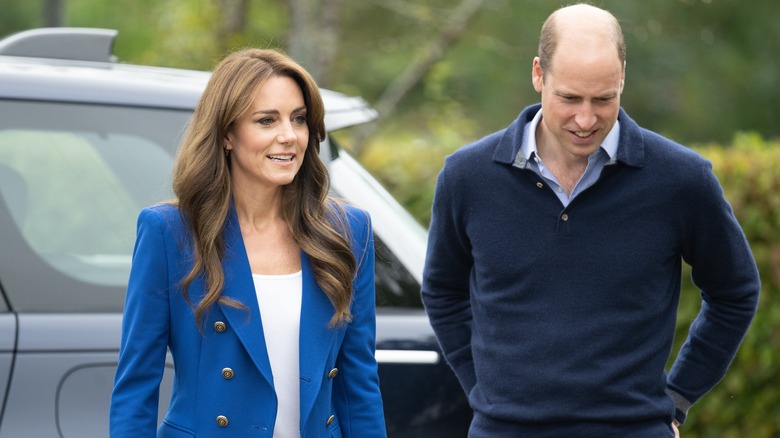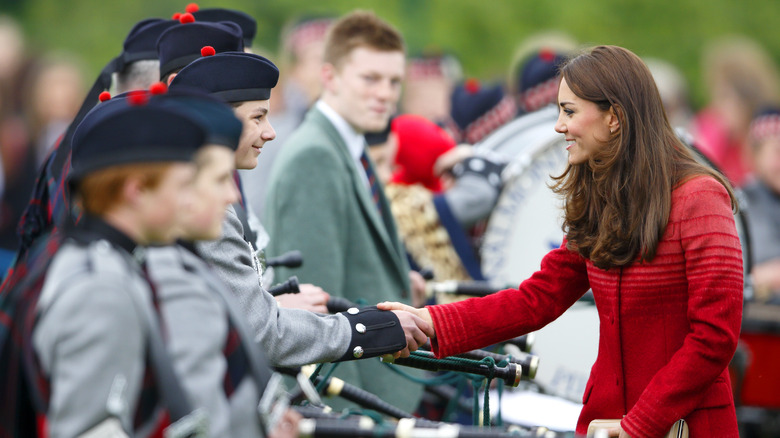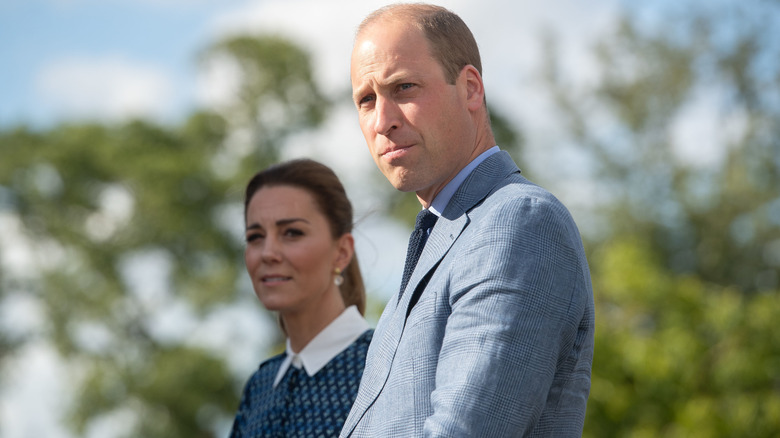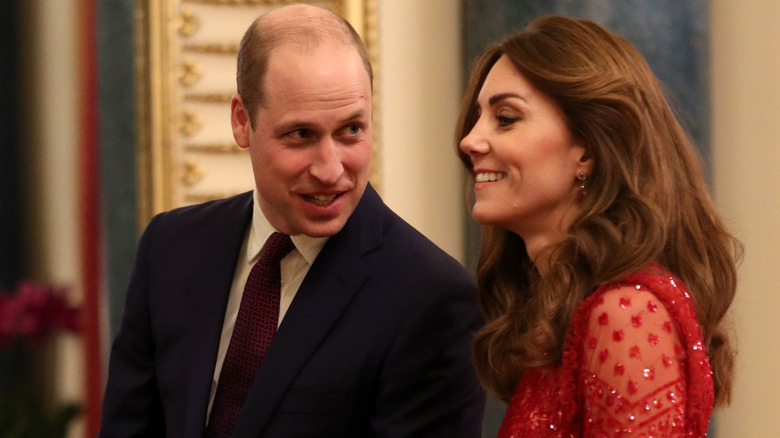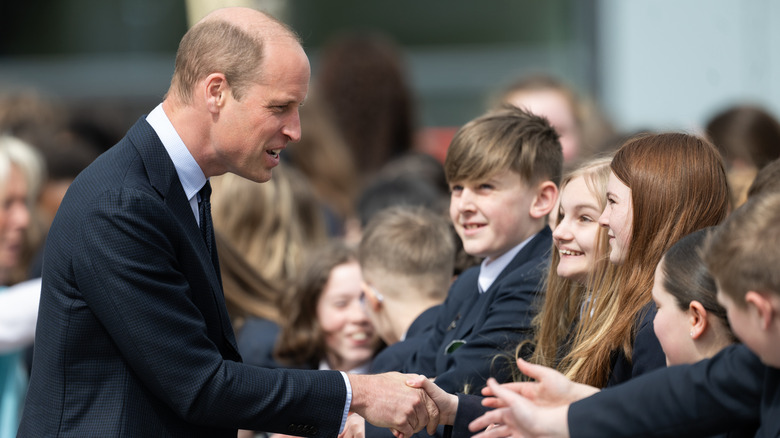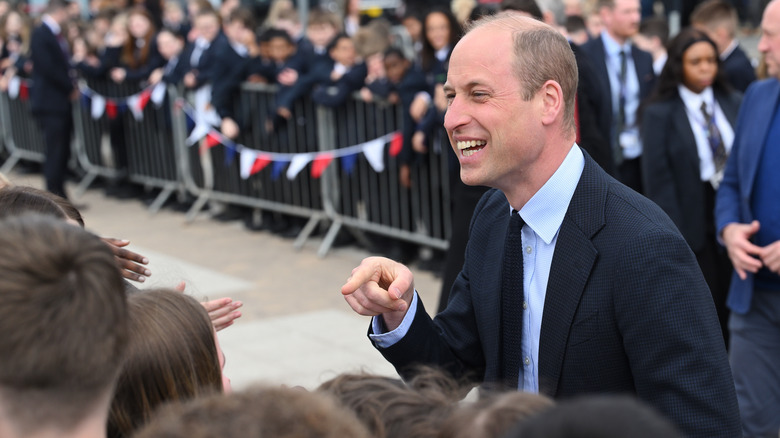What Will Happen When Prince William Becomes King?
The royal family has it all: fame, power, glamour, and endless wealth. But even so, we've seen some of the royal family's worst tragedies play out for all the world to see, proving that even the ruling class has their struggles. For the members of the firm, the last few years have been a doozy. First, there was the death of their beloved matriarch, Queen Elizabeth II, who died in 2022 after a historic 70-year reign. Then came the public fall-out with Prince Harry and his scathing tell-all book, "Spare." Just when things seemingly couldn't get worse for the regal bunch, Buckingham Palace delivered the shocking news of King Charles III's cancer diagnosis in February 2024.
While few details have emerged about Charles' condition, the Palace announced his return to royal duties in April 2024, indicating that his health could be on the upswing. Nonetheless, Charles' harrowing diagnosis has prompted many to wonder: What will happen when Charles dies and Prince William becomes king? The short answer is a lot.
William will ascend the throne immediately after Charles dies (or in the less likely scenario that Charles abdicates due to his health issues). As expected, the royal will take his father's place as England's figurehead and carry out his diplomatic duties. But as the monarchy attempts to modernize its image, William's reign could veer away from some of the old ways of the monarchy. Here's what to expect when William becomes king.
Britain may be in mourning when Prince William becomes king
All eyes were on the royal family when Queen Elizabeth II died in September 2022. Members of the public joined the royals to mourn the late sovereign, transforming the gates of Buckingham Palace into a colorful sea of flowers and mementos. But it wasn't just a time for personal grief — Elizabeth's death also triggered an official period of mourning that lasted for 10 days. During the somber event, the queen's coffin traveled around the United Kingdom, accompanied by a flurry of speeches, ceremonies, and gun salutes.
Assuming King Charles III doesn't abdicate, the most likely scenario for Prince William becoming king will be Charles' death. In all likelihood, a similar mourning period will take place when Charles dies – in addition to taking on his new role as king, William will be navigating the loss of his father. It will likely be a sad time for the monarch and Britain.
On the other hand, some experts note how Charles could end up abdicating and leaving the throne to William if his health declines. This is a slim possibility, but a possibility nonetheless. "It's never been invoked in modern times, but should that happen, the Prince of Wales (William) would take over the major functions of his father," royal expert Joe Little told USA Today. "But honestly, depending on (Charles') condition, it is just as easy for him to continue functioning as king but perhaps without the public appearances."
Prince William could change his name when he becomes king
One of the perks of being sovereign is that you have the option to change your name when you ascend the throne. In Prince William's case, he has a plethora of regal monikers to choose from. William's full name is already a mouthful — William Arthur Philip Louis, Duke of Cambridge, Earl of Strathearn and Baron Carrickfergus, so whatever he chooses to go by will hopefully be a little less complicated. William could adopt one of his middle names; however, if he decided not to change his name, his royal title would become King William V.
Regardless of his potential future name, there's at least one title that William seems totally uninterested in embracing. Historically, the sovereign serves as the Supreme Governor of the Church of England — but as some experts have predicted, William might skirt this role due to his lack of involvement with the church. Royal expert Robert Hardman elaborated on this possibility in his book, "The Making of a King."
"In royal circles, it is no secret that he does not share the King's sense of the spiritual, let alone the late queen's unshakeable devotion to the Anglican church," Hardman wrote (via the Daily Mail). According to Hardman, a source inside the Palace stated that William "very much respects the institutions but he is not instinctively comfortable in a faith environment."
When William becomes king, Princess Catherine will receive a new title
When Prince William becomes king, plenty of changes will be in store for his wife, Princess Catherine. For starters, she'll ditch the title of princess and be upgraded to queen. In Catherine's case, this transition won't require an entirely new first name; she'll still be known to the world as Catherine. Similarly to her stepmother-in-law, Queen Camilla, the title of Queen Consort will go to Catherine. In the event that King Charles III dies and William ascends the throne, Camilla would drop Queen Consort and become Queen Dowager, the official title of the sovereign's widow.
Following the line of succession, William will one day pass the crown to his eldest son, Prince George. If this all happens during Princess Catherine's lifetime, she'll have the opportunity to assume yet another royal title. "When [Prince] George is King (if Catherine is still alive), she can choose to be styled as HM Queen Catherine, The Queen Mother," royal expert Marlene Koenig explained (via New Idea). The title of Queen Mother previously belonged to Queen Elizabeth II's mother, who carried the moniker from 1952 until she died in 2002.
As king, Prince William will have the authority to give his children new titles
Becoming the sovereign doesn't just mean big changes for Prince William and Princess Catherine; it also signifies a shift for their three children, Prince George, Princess Charlotte, and Prince Louis. In addition to moving up the line of succession, each child will be in the running for a new royal title.
Per tradition, when William becomes king, his eldest son, George, will be named the Duke of Cornwall and Duke of Rothesay. Charlotte could eventually hold the rank of Princess Royal; however, a few major events would need to happen beforehand. For starters, the title would have to be formally given to her by her father. Additionally, Charlotte can only receive the title after the current Princess Royal, Princess Anne, has died. If Charlotte marries, she will be eligible to become a duchess. In this scenario, she would follow in the footsteps of her parents, who became a duke and duchess on their wedding day.
As for William's youngest son, Louis, he may also be in the running for the title of duke. As People pointed out, Louis is a strong candidate to one day become the Duke of York — but for that to happen, he must be married, and Prince Andrew, the current Duke of York, must no longer be living.
Prince William's coronation will probably be less glitzy than the rest
When it comes to royal traditions, the coronation is the crème de la crème. From the historic ceremonies to the elaborate garb, the crowning of a new sovereign feels like a fantasy novel sprang to life. It's no wonder that, historically, the royal family has spared no expense on this sacred tradition. However, compared to the coronations of the past, King Charles III's special day was smaller and shorter — he hosted only 2,000 guests compared to Queen Elizabeth II's 8,000. Plus, the ceremony wrapped up after about an hour, considerably down from previous times.
Many experts predict that when Prince William becomes king, his coronation will be even more scant than Charles' ceremony. According to royal historian Kelly Swaby, this trend will likely continue as coronations become less relevant over time. "I think some people only stomached King Charles' [coronation] because we hadn't had one for 70 years because the queen had reigned for so long," Swaby told 9News. "And if we do have one for William I think we'll see it be scaled back even more than we did for the king. So gradually if we do keep having them, they'll just get smaller and smaller every time."
The national anthem won't be revamped when Prince William becomes king
Queen Elizabeth II's death prompted Great Britain to change its tune — literally — when the country's national anthem "God Save the Queen" became "God Save the King" in honor of Elizabeth's successor, King Charles III. Despite singing "God Save the Queen" for seven decades during Elizabeth's reign, Britain will continue to sing the masculine version when Prince William becomes king. While "God Save the King" is an ode to the sovereign, you won't catch Prince William singing the song when he becomes king. That's because the ballad is meant to be sung to the sovereign; therefore, the sovereign isn't supposed to join in on the singing. Fans observed this tradition during Queen Elizabeth's funeral when everyone in attendance sang the national anthem except for the new sovereign, King Charles.
But that's not the only surprising way the national anthem might factor in William's kinghood. Following William, his son Prince George is next in line to be king, and he won't be the first George to be king of England. The national anthem itself first came about during the reign of King George II in 1745, meaning William's son could one day have the original lyrics sung for him, which starts with "God save great George our king."
Prince William will get unique travel benefits as the head of the state
The specific duties of the royal family obviously vary from person to person, but pretty much all of its members have to travel far more often than the average person. Whether on official duty or to make appearances with other state officials, the royals spend plenty of time on planes. When Prince William becomes king, not only will he likely travel so much more than he does as a mere prince, but he'll also be able to pack a little lighter.
In fact, the monarch doesn't need a passport to travel to other countries. Obviously, as the highest title in Britain, the king is easily recognizable and apparently doesn't need a formal piece of identification to travel. Interestingly enough, Princess Catherine, will still need a passport, and William will likely need to answer certain security questions before taking off. Still, it's one less thing for the future king to worry about.
Prince William's wife will get access to all the crown jewels when he's king
It's no secret that one of the absolute biggest perks of becoming a member of the royal family is that you no longer have to stress about money, or even think about working a regular job. For that reason, being a royal is pretty much a dream come true, and part of that dream includes jewels — lots and lots of jewels. In the British tradition, the so-called crown jewels belong to the monarch and the monarch only. So while Prince William is still a prince, his wife, Princess Catherine, doesn't get to wear whatever crown jewels she wishes.
As it stands, Catherine gets to borrow certain pieces of jewelry from the monarch's collection for special occasions. But once William becomes king, and Catherine becomes Queen Consort, she will gain access to all of the crown jewels. Yes, all of them. The noteworthy pieces, including tiaras, crowns, rubies, emeralds, and so many diamonds will be available to Catherine at any time.
Prince William will be closely involved in Parliament if he is the ruling monarch
As important as the British royal family is, it's also interesting to note that even the highest-ranked royals don't have a whole lot of political power. Specifically, King Charles III is the head of state and is to remain politically neutral. The king doesn't vote and isn't elected into any sort of office, either. However, Charles does have ceremonial roles, and when it comes to Parliament — the British government body — he's very involved. So, then, will be Prince William when he becomes king.
Additionally, there's a formal phrase, "King-in-Parliament," which is a descriptive term for the Sovereign, the House of Lords, and the House of Commons which together make up the British legislature. While King Charles doesn't have political power, he does open the sessions of Parliament and approves Orders and Proclamations as well. So, when Prince William is king, he'll take over those duties and become just as involved in Parliament as his predecessors.
As the monarch, Prince William will have the power to appoint a new Prime Minister
While Prince William still won't be able to create laws or change too much when he becomes King of England, one thing he will be able to do is possibly appoint a new Prime Minister. Really, it's complicated, but the monarch is pretty involved with the Prime Minister, which makes sense, as they're both important figures in Britain.
But, as it stands, this important royal duty is only executed under certain circumstances. Specifically, the king or queen appoints the Prime Minister when necessary, as well as meets with them on official business whenever it's required.
So, when William takes over the duties of King of England, he may also appoint a new Prime Minister, which would be a pretty big deal. That's just one more way in which his life will be different after his coronation.
Prince Harry's life won't change much when Prince William becomes king
While Prince William has practically always known that he'll one day be king, his younger brother, Prince Harry, knew just the opposite. The youngest son of Princess Diana and King Charles III, Prince Harry had very little chance of ever becoming king, though it appears that doesn't exactly bother him. Since emigrating to California with his wife Meghan Markle, Harry seems quite content removed from royal duties.
After denouncing their roles as senior royal members, it's unclear what their future will look like away from the throne. However, one thing is certain: once William becomes king, Harry's life likely won't change all that much. Not only would he still be fourth in line to the throne after William's three children, but he might not even want to be in line at all.
Prince William and Princess Catherine will move when he becomes king
Let's just get one thing clear: Prince William and Princess Catherine definitely do not live in a tiny shack in England. In fact, after they got married in 2011, the pair moved into an apartment at Kensington Palace, which Catherine redecorated to look just as swanky as any palace you could imagine. However, as of 2024, the couple and their three children, Prince George, Princess Charlotte, and Prince Louis, live at Adelaide Cottage in Windsor Home Park.
But their address will most likely change once Prince William becomes king, as they upgrade their residence to a more prestigious abode. In fact, ever since Queen Victoria's reign, the British monarchs have all lived in Buckingham Palace. To that end, once Prince William ascends to the throne, it's likely that he will also move to this huge cultural landmark in central London.
As king, Prince William and his family may receive a special wakeup call
While you might automatically associate being a member of the royal family with money, fame, power, and a calendar full of fancy events to attend, there's one part of being royal that doesn't sound all that exciting. One tradition that dates back to 1843 during the reign of Queen Victoria is the sound of bagpipes playing early in the morning to awaken the monarch and signal the beginning of the day.
In September 2022, Pipe Major Paul Burns played for Queen Elizabeth II for the last time before playing for King Charles III for the first time the following month. Once Prince William becomes King of England, it seems as though he won't have any use for an alarm clock, as he'll also be awoken in the same way that the monarch of Britain has been for centuries. Of course, William is already signaling that his monarchy will be ruled with a modern fist, so this tradition could be scrapped in favor of a more modest wakeup call.
Even if he's king, Prince William can't make any new laws on his own
Much like the monarchy doesn't hold a lot of political authority throughout Britain, they also don't have a ton of authority, period — well, at least when it comes to laws. You see, while the kings and queens of Britain's past could certainly make laws and govern over the nation, the modern monarchy of England is more symbolic than anything else.
To that end, when Prince William becomes king, he can't make any new laws on his own. Specifically, according to the Royal U.K. website, the king or queen of Britain is the Head of State, and in that instance, is what's known as "a constitutional monarchy." Basically, even though the king or queen might be known as the Head of State, the only way legislation is created and passed is within Parliament, which has elected positions. So, when William is king, he won't just be able to create new laws without the help of parliament, despite being the literal king of England and pretty much getting anything else he might want.
Prince William will be a lot richer when he's head of the firm
Being a member of the royal family doesn't come cheap, and keeping up with the Wales family is a hefty task. After all, it must cost a lot to buy all the proper clothes and shoes, as well as attend the best private schools and colleges. But obviously, Prince William doesn't really have to worry about that. According to Celebrity Net Worth, as of April 2024, William is worth an estimated $100 million.
However, once he becomes king, William and Princess Catherine will see an even bigger increase in their wealth. The future king will receive a paycheck of around $20 million from the Duchy of Lancaster and receive an inheritance from his father, King Charles III. Furthermore, upon Queen Elizabeth II's death, William inherited the private estate of the Duchy of Cornwall which is worth approximately $1.2 billion.
So basically, William is already rolling in cash but once his coronation comes around, he'll be sitting on a fortune, and that's not even including any fine jewelry and other estates he might receive.
Prince William won't have to bow to anyone when he becomes king
Though it might just be a small change, one thing Prince William can look forward to when he ascends to the throne is one less etiquette rule to follow. Specifically, William won't have to bow to anyone anymore when he becomes king.
While it's royal etiquette to bow to the monarch when you meet them, that will change for William when he takes the throne. Before, William would have to bow to all other senior ruling family members such as his grandmother Queen Elizabeth II and his father King Charles III. After that, there will be no more of it. And as for William's wife, Princess Catherine will only have to curtsy to him and no one else.
These rules also apply to meeting monarchs from other countries. For example, if William were king, he is also not required to bow to King Felipe VI of Spain or King Abdullah II of Jordan.
Prince William is on track to become a well-liked king
For decades, Queen Elizabeth II was the saving grace of the royal family. Even during turmoil and public scrutiny, the royals looked to Elizabeth for guidance, and she always delivered. Thanks to her loveable manner and dedication to the crown, the late sovereign was widely adored by the public. By the end of her 70-year reign, Elizabeth was an iconic symbol of British pride. According to a poll by Statista, the queen enjoyed an 81% approval rating before she died in 2022. That said, it's no secret that when her grandson, Prince William, inherits the throne, he'll have some massive (not to mention stylish) shoes to fill.
But the good news is that William seems to be on track for a successful reign. In February 2024, Statista polled 2,053 Britons and found that 77% had a favorable opinion of the future king. The poll also showed that William's father, King Charles III, had a 66% approval rating. If those numbers hold, William could go down in history as a more popular sovereign than Charles. Of course, we can't know for sure what lies ahead for Prince William and the rest of the monarchy — only time will tell.

